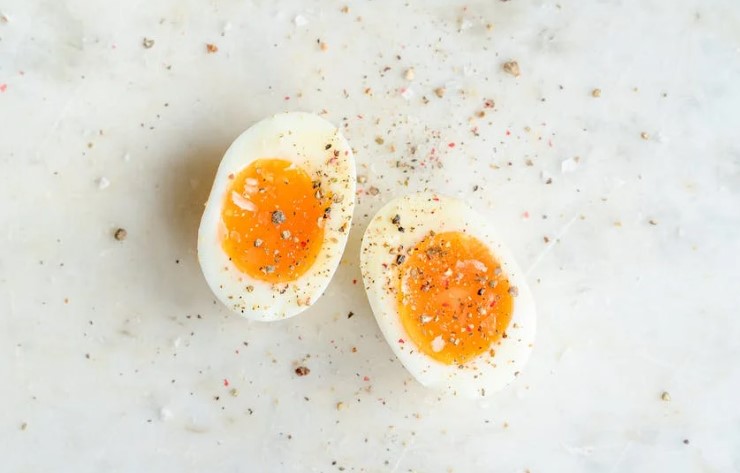In terms of storing soft-boiled eggs, it’s crucial to understand their shelf life to ensure you are enjoying them safely. Soft-boiled eggs can last a maximum of two days in the refrigerator due to their partially cooked state. In this informative blog post, we will investigate into the factors that affect the longevity of soft-boiled eggs, provide storage tips, and explain how to reheat them while maintaining their delicious texture. By following these guidelines, you can savor the goodness of soft-boiled eggs without compromising on freshness and safety.
Key Takeaways:
- Shelf Life: Soft boiled eggs can last up to two days in the refrigerator due to their partially cooked state.
- Factors Affecting Longevity: Factors such as temperature, shell integrity, and cross-contamination can influence the shelf life of soft boiled eggs.
- Proper Storage Techniques: Store unpeeled soft boiled eggs in a covered container, keep them away from strong-smelling foods, and use damp paper towels to prevent drying out.
- Reheating: Reheating soft boiled eggs may alter the texture and fully cook the yolk, but it is possible by simmering in water for a few minutes.
- Freshness and Safety: Purchase fresh eggs, avoid leaving them at room temperature for too long, and use the float test if unsure about the freshness of a soft boiled egg.

Shelf Life of Soft Boiled Eggs
Understanding the Shelf Life
To ensure the freshness and safety of your soft boiled eggs, it’s crucial to consume them within two days of cooking. The partially cooked state of soft boiled eggs, with a soft-set white and runny yolk, makes them more susceptible to bacterial growth. This shorter shelf life is due to their unique texture and consistency, compared to hard-boiled eggs. It’s important to remember this timeframe to avoid any potential health risks.
Factors Affecting Longevity
Pertaining to the longevity of soft boiled eggs, several factors come into play. Temperature control is key, as storing your soft boiled eggs at a consistent temperature below 40°F (4°C) is vital for maintaining their freshness. Ensure the shell integrity of the eggs before cooking, as cracked or damaged shells can lead to bacterial contamination. Keep your soft boiled eggs separate from other foods in the refrigerator to prevent cross-contamination and maintain their quality.
- Temperature: Storing soft boiled eggs at a consistent temperature below 40°F (4°C) is crucial for maintaining their freshness.
- Shell Integrity: Eggs with cracked or damaged shells are more prone to bacterial contamination.
- Cross-Contamination: Keep soft boiled eggs separate from other foods in the refrigerator.
On top of these factors, proper storage techniques and handling can also impact the shelf life of your soft boiled eggs. Perceiving the importance of these factors will help you enjoy your soft boiled eggs while prioritizing freshness and safety.
Reheating and Safety Tips
Reheating Soft Boiled Eggs
It is possible to reheat soft boiled eggs, but keep in mind that the texture may change, and the yolk may become fully cooked. To reheat your soft boiled eggs, place them in a saucepan filled with enough water to cover them. Bring the water to a gentle simmer over medium heat. Remove the saucepan from the heat, cover it, and let the eggs sit for approximately 3-4 minutes. Carefully remove the eggs from the saucepan, peel them, and enjoy.
Tips for Ensuring Freshness and Safety
- Always purchase fresh eggs from reliable sources.
- Avoid consuming soft boiled eggs that have been left at room temperature for more than two hours.
This ensures that your soft boiled eggs are safe to eat and maintain their quality. If you’re unsure about the freshness of a soft boiled egg, you can perform the float test. Place the egg in a bowl of water; if it sinks and lays flat on the bottom, it’s fresh. If it stands upright or floats, it may not be safe to consume.
To Wrap Up
Considering all points discussed in this article, it is important to remember that soft-boiled eggs have a shorter shelf life compared to hard-boiled eggs due to their partially cooked state. To ensure their freshness and safety, it is recommended to consume soft-boiled eggs within two days of cooking. Proper storage techniques, such as keeping them refrigerated and checking for shell integrity, are crucial to maintain the quality of the eggs.
To enjoy the deliciousness of soft-boiled eggs while prioritizing your health, remember to purchase fresh eggs from reliable sources, avoid leaving them at room temperature for extended periods, and follow proper reheating techniques if needed. By following these guidelines and tips, you can savor the delightful texture and flavor of soft-boiled eggs without compromising on safety or taste. Enjoy your breakfast with confidence knowing you are making the most of your soft-boiled eggs!
FAQ
Q: How long can soft boiled eggs last in the fridge?
A: Soft boiled eggs, when stored in their shells, can last a maximum of two days in the refrigerator due to their partially cooked state.
Q: What factors affect the longevity of soft boiled eggs?
A: Factors such as temperature, shell integrity, and cross-contamination can influence the shelf life of soft boiled eggs.
Q: How should soft boiled eggs be stored to maximize freshness?
A: Store unpeeled soft boiled eggs in the refrigerator in a covered container, avoid washing them before storing, and keep them away from strong-smelling foods.
Q: Can soft boiled eggs be reheated?
A: While it is possible to reheat soft boiled eggs, the texture may change, and the yolk may become fully cooked. Follow proper reheating techniques for best results.
Q: What are some tips for ensuring the freshness and safety of soft boiled eggs?
A: Always purchase fresh eggs from reliable sources, avoid consuming eggs left at room temperature for more than two hours, and perform a float test if unsure about their freshness.







